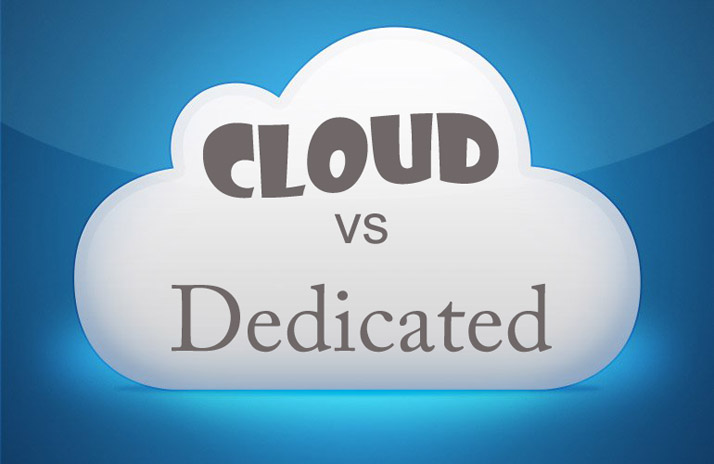In an increasingly competitive and digitized world, CXOs are constantly faced with the dilemma of choosing the right IT infrastructure to host their business critical enterprise data. On one hand there is pressure to securely manage constantly growing terabytes of enterprise data and on the other, pressure to maintain ever-increasing IT infrastructure costs. Decision-makers frequently struggle to arrive at a decision when confronted with the question of choosing between the two most popular enterprise hosting technologies – Dedicated and Cloud. In this blog, we will try and provide an insight into both these data hosting models to help our readers make an informed decision with regards to their enterprise hosting needs.
Dedicated Server
Dedicated Server as the name suggests is a server dedicated completely for an individual client’s computing needs. It is one of the earliest forms of hosting wherein an entire physical server is purchased or rented exclusively by a business for their computing needs. Dedicated servers are ideal for organizations that deal with large volumes of data or sensitive information – for example banks, financial institutions, government institutions. They are the safest in terms of data security and offer much optimum freedom and control to clients. Clients are provided with root access to their servers, have the liberty to run their own applications, install firewalls and other additional software and security layers onto their servers.
However, dedicated servers are costly and therefore are not the preferred option for most businesses. Scalability is another drawback of dedicated servers – purchase of physical hardware and installation of related softwares is a time consuming process. On the top of it, dedicated servers also require businesses to retain an IT resource team to manage their servers or outsource it to a professional data center service provider that provides fully managed dedicated server offerings.
Cloud Server
Advancements in technology in the past few years gave birth to cloud storage and computing. The advent of the cloud has been touted as the ‘next big thing’ in enterprise storage needs.
Cloud storage is ideal for organizations that witness frequent upward and downward surges in storage demand and instant scalability is of utmost importance for business success. For example: E-commerce websites. It is a well-known fact that e-commerce websites witness constant upward and downward surges in traffic. The number of visitors during certain hours of the day (peak hours, off-peak hours) or during certain days of the year (Diwali, Christmas, New Year) is higher compared to other times. Alternately, their computing needs are minimal during off-peak hours of the day and off-festive seasons. For such businesses, cloud is the preferred option as it offers instant scalability at minimal costs in the least timeframe. Cloud is also a desired option for small and medium businesses as Cloud servers provide a similar level of performance, security and efficiency of a dedicated server without the heavy costs involved in purchase and management of a fully dedicated infrastructure.
In cloud server, clients have the benefit of ‘pay for use’ model, i.e. clients are charged only for the amount of server space used by them on an hourly basis rather than a fixed amount like in the case of dedicated servers. Clients have the freedom to align their IT resources based on demand and avoid paying for idle infrastructure costs when demand is low.
In recent times, cloud computing service providers have added several software aided safety and technology features that are increasingly diminishing questions about security and control of cloud servers. But, they are still in early stages and it will take a while before it witnesses large scale adoption.
Which is better?
As outlined above, both dedicated and cloud servers have their own share of advantages and drawbacks. Individual businesses need to identify their individual enterprise computing needs before zeroing in on their preferred hosting model.
Read More at : Comparison between Cloud Server Hosting and Dedicated Server Hosting






 Live Chat
Live Chat

